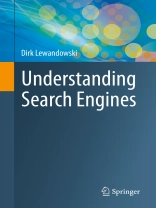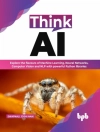This book provides a broad introduction to search engines by integrating five different perspectives on Web search and search engines that are usually dealt with separately: the technical perspective, the user perspective, the internet-based research perspective, the economic perspective, and the societal perspective.
After a general introduction to the topic, two foundational chapters present how search tools can cover the Web’s content and how search engines achieve this by crawling and processing the found documents. The next chapter on user behavior covers how people phrase their search queries and interact with search engines. This knowledge builds the foundation for describing how results are ranked and presented. The following three chapters then deal with the economic side of search engines, i.e., Google and the search engine market, search engine optimization (SEO), and the intermingling of organic and sponsored search results. Next, the chapter on search skills presents techniques for improving searches through advanced search interfaces and commands. Following that, the Deep Web and how its content can be accessed is explained. The two subsequent chapters cover ways to improve the quality of search results, while the next chapter describes how to access the Deep Web. Last but not least, the following chapter deals with the societal role of search engines before the final chapter concludes the book with an outlook on the future of Web search.
With this book, students and professionals in disciplines like computer science, online marketing, or library and information science will learn how search engines work, what their main shortcomings are at present, and what prospects there are for their further development. The different views presented will help them to understand not only the basic technologies but also the implications the current implementations have concerning economic exploitation and societal impact.
Table of Content
– 1. Introduction. – 2. Ways of Searching the Web. – 3. How Search Engines Capture and Process Content from the Web. – 4. User Interaction with Search Engines. – 5. Ranking Search Results. – 6. Vertical Search. – 7. Search Result Presentation. – 8. The Search Engine Market. – 9. Search Engine Optimization (SEO). – 10. Search Engine Advertising (SEA). – 11. Alternatives to Google. – 12. Search Skills. – 13. Search Result Quality. – 14. The Deep Web. – 15. Search Engines Between Bias and Neutrality. – 16. The Future of Search.
About the author
Dirk Lewandowski is Professor of Information Research and Information Retrieval at Hamburg University of Applied Sciences, Germany. His main research areas are Web information retrieval, data science, and search engines, including their impact on users and society. He has worked as an expert and advisor, among others, to the High Court of Justice (UK) and the German Federal Parliament.












